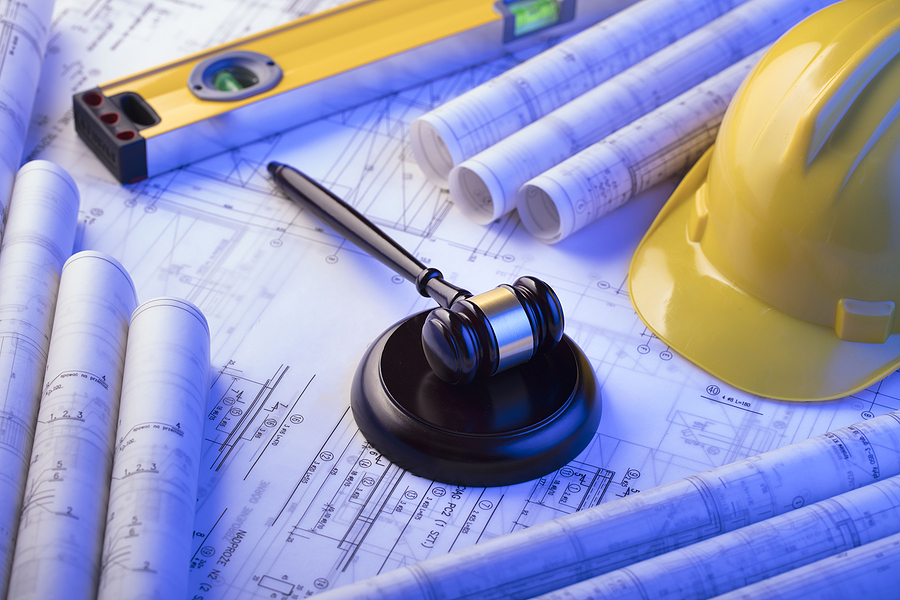Running a successful business involves more than just offering excellent products or services; it also requires maintaining a well-functioning and visually appealing commercial space. For small business owners, property managers, entrepreneurs, and building owners, recognizing the signs that your commercial space needs a renovation is crucial for ensuring operational efficiency, safety, and overall aesthetic appeal. In this guide, we’ll explore the potential hazards that indicate a need for commercial renovation and provide actionable advice to address these issues effectively.

Signs Your Commercial Space Needs Renovation
Deteriorating Infrastructure
The backbone of any commercial space is its infrastructure. Over time, buildings experience wear and tear that can compromise their structural integrity. Look out for the following signs:
- Cracks in Walls and Ceilings: These can indicate foundational issues.
- Leaking Roofs: Water damage can lead to mold and structural decay.
- Faulty Electrical Systems: Frequent power outages or flickering lights are red flags.
- Plumbing Problems: Persistent leaks or slow drains can indicate underlying issues.
Outdated Aesthetics
First impressions matter. An outdated appearance can negatively impact your business by deterring potential clients and giving an impression of neglect. Indicators that your space needs a facelift include:
- Worn-Out Flooring: Stains, cracks, or outdated styles can be off-putting.
- Faded Paint: Peeling or outdated paint colors can make a space look neglected.
- Old Fixtures: Aging light fixtures, doors, and windows can give a dated look.
Technology Gaps
In today’s fast-paced world, technology plays a significant role in business operations. Falling behind on technological advancements can hinder your efficiency and competitiveness. Signs that you need a tech upgrade include:
- Outdated Networking Equipment: Slow internet speeds and connectivity issues.
- Insufficient Power Outlets: Modern businesses need ample outlets for various devices.
- Lack of Smart Technologies: Integrating smart technology can improve energy efficiency and convenience.
Safety and Health Hazards
Ensuring the safety and health of your employees and customers is paramount. Neglecting this aspect can lead to severe liabilities and loss of trust. Be vigilant for the following hazards:
- Mold and Mildew: These can cause serious health issues and indicate water problems, especially black mold outbreaks.
- Asbestos: Particularly in older buildings, asbestos can pose significant health risks.
- Fire Safety Issues: Outdated fire alarms, extinguishers, and escape routes.
- Accessibility Concerns: Ensure your building complies with ADA standards for accessibility.
The Importance of Timely Renovation
Potential Consequences of Ignoring Renovation Needs
Ignoring the need for renovations can lead to several adverse outcomes:
- Decreased Property Value: Neglected properties lose value over time.
- Increased Repair Costs: Small issues can escalate into significant problems that are costlier to fix.
- Legal Liabilities: Non-compliance with building codes can result in fines and legal actions.
Correcting Building Code Violations
Adhering to local building codes is not only a legal requirement but also a matter of safety. Regular inspections can help ensure that your commercial space meets all regulatory standards and avoids potential penalties.
Planning Your Renovation
Key Considerations for a Successful Renovation Project
Planning is crucial for a successful renovation. Here are some key considerations:
- Scope of Work: Identify the areas that need attention and prioritize them.
- Timeline: Set realistic deadlines to minimize disruption to your business operations.
- Permits and Approvals: Ensure you have all necessary permissions before commencing work.
Budgeting and Financing Options
Renovations can be costly, but there are various ways to manage the financial aspect:
- Set a Budget: Determine how much you are willing to invest.
- Explore Financing Options: Look into loans, grants, and other financing options available for commercial renovations.
- Cost-Benefit Analysis: Evaluate the potential ROI of the renovation.
Finding the Right Contractor
Tips for Selecting a Reliable and Experienced Contractor
Choosing the right contractor is crucial for the success of your renovation project:
- Research and Referrals: Seek recommendations from trusted sources and do thorough research.
- Check Credentials: Ensure the contractor is licensed, insured, and has relevant experience.
- Review Past Projects: Look at their portfolio to gauge their expertise and quality of work.
The Importance of Communication and Transparency
Effective communication and transparency are key to a smooth renovation process:
- Regular Updates: Ensure the contractor provides regular progress updates.
- Clear Contracts: Have a detailed contract outlining the scope of work, timelines, and costs.
- Open Communication Channels: Maintain open lines of communication to address any concerns promptly.
Conclusion
Maintaining a commercial space that is both functional and aesthetically pleasing is vital for any business. Recognizing the signs that your space needs renovation and acting on them promptly can prevent minor issues from escalating into significant problems. By planning meticulously, budgeting wisely, and choosing the right contractor, you can ensure a successful renovation that enhances your business operations and appeal.
Don’t wait until it’s too late—regularly inspect your commercial property, stay informed about local building codes, and consult with renovation experts to keep your space in top condition. For more expert advice on commercial renovations or to schedule an assessment, contact BAF Corporation at 317-253-0531, today. Let’s make your commercial space safe, modern, and competitive.
Related Posts:
5 Advantages of an Exterior Facade Renovation
Cost Cutting Advice for Commercial Renovations
Top Renovations That Will Increase Rental Property Revenues

